![]()
Economic War and ‘Decisive Confrontation’ with Economic Criminals
The editorial of Siasat Emrooz daily suggests now that Iran is in an economic war with America, Iranian government has the right to punish and even confiscate the manufacturing units for their violations. Such units must be taken from their owners and given to worthy, committed managers, the editorialist holds.
According to the editorial, confronting the US economic war requires special mechanisms and under such conditions, the domestic violators mustn’t be treated as if everything is normal. The American is now following an economic, cultural, propaganda, and psychological war against Islamic Republic.
The editorial continues: America uses international and legal instruments to weaken countries such as Iran. One can go so far as to say that conventions like CFT prepared by FATF is for controlling countries like Islamic Republic. It is obvious what Iran should do with ‘foreign enemies’, but it should also use certain mechanisms to reduce impacts of the US measures.
The editorialist holds that Iran has no problems in producing strategic products and goods to provide people’s livelihood. But due to some disorders, some people are taking advantage of the situation and only think of their own illegal benefits. Now, the editorialist asks, what should be done with them?
In response, the editorial strongly proposes that at the time of war (be it military or economic), governments have confronted violators severely, because the government’s priority is protecting the right of the majority of people against threats. As such, the editorialist says, Iranian people expect to see decisive confrontation with these violators.
Siasat Rooz – December 5
Inflationary Recession Awaits the Market
The editorial of Kasbokar newspaper mulls over the condition of the market in Iran, predicting how it is heading towards an inflationary recession.
According to the editorial, even though Iranian Central Bank’s monitoring over and intervention in the market has had a direct role in decreasing rate of dollar, it doesn’t mean a real drop in dollar rate. That is because those who demand dollars are still confused and are not receiving any dollar at the announced prices.
The editorial continues: despite the fact that the government can reduce the rate of dollar through economic tools, the country’s economy is still under sanctions, Forex reserves is low, and the future of selling oil is still unclear. Government’s monitoring has driven away many false buyers from the Forex market, yet restriction in supplying currency shows that Forex reserves is not enough and might even be more limited in the future.
The editorial adds, as a result, even though there has been a decrease in dollar rate due to the Central Bank’s intervention, this rate is in reality still high for those who really demand currency. Also, it must be urged that with policies adopted by the Central Bank, there will be a leap in dollar rate in future.
The editorial goes on to say: with decrease in dollar rate, false demands in the market has decreased too, and what exists in the market is demand for consumption. That is why a deep recession awaits the market. And given the fact that inflationary recession will still continue, and the government has no plans for controlling it, an inflationary recession is predicted for the goods market, unless the prices of the essential goods are controlled, and rates are decreased by force.
Kasbokar news – December 4
New Urban Management and People’s Expectations
Following the election of the new mayor of Tehran, capital of Iran, the editorial of Mardomsalari daily enumerates people’s concerns and their demands from Tehran new mayor.
According to the editorial, electing a new mayor for Tehran means changes and new developments in Tehran’s municipality. These changes can promise better days for Tehran and its citizens. Reviewing these issues can be a reminder of main concerns and demands of people from Tehran’s new mayor.
The editorial continues: Tehran’s architecture has lost its traditional touch which was based on Iranian and Islamic culture, and is now in western style. Old houses have been replaced with apartments with a western look. Even though municipality has tried to bring back the traditional atmosphere to the city, it has obviously failed.
The editorial adds: the biggest issue in Tehran is that of traffic which wastes the energy and time of those living in Tehran. Air pollution, too, which is directly related to traffic, is another issue which must be considered. Despite promises made, no effective measure has been taken so far.
The editorial goes on to say that bureaucratic mismanagement and corruption is another issue. The issue of ‘astronomical properties’ during former mayor of Tehran made people pessimistic towards the officials. Tehran’s City Council and mayor are responsible for creating transparency with regard to such issues.
The editorial ends with emphasis on the necessity of transparent management in the country, which ought to start for management of Tehran. Otherwise, it will not have any results for the people.
Maromsalari – December 3
Iran and New Cold War
The editorial of Etelaat newspaper mulls over the impact of global and regional issues over Iran’s economy and politics and the country’s future, if Iran keeps losing its economic opportunities.
The editorial starts with G20 Summit in Argentina and different issues overshadowing it. Russia’s dominance in global disputes and issues was of great significance: The issue of Ukraine, meddling in US election and manipulations of social media in favor of Trump, Russia’s role in Syria were of significance in the summit. Also, Middle East disputes and future of Yemen and Syria were other important issues raised in Argentina. Does that mean a new cold war has started or is about to start?
The editorial continues: but what is important for Iran is to think of the impacts of these issues on the country’s economy and politics. Where is Iran standing? Despite its exceptional geopolitical and geo-economic position, why isn’t Iran among big economies? How come that Iran’s economy has become smaller and regional, while global and regional sanctions and moves might result in ignoring and eliminating Iran’s interests and resources?
The editorial adds: significant presence in bilateral and multilateral commercial trades creates security, while strengthening political power and international credibility of countries. Without trade, countries will be easily isolated and overlooked in significant developments. Even military power will not have much to say in the absence of dynamic and flexible economy in domestic, regional and international levels. Economic leverages always talk first.
The editorial concludes: so far, Iran must have become one of the big 20 global economies. Why should Iran’s big projects be eliminated? We must keep in mind that if there is no change in the situation, UAE, Iraq and Azerbaijan will probably be considered as big economies in future, while Iran gets closer to Pakistan and Afghanistan.
Etelaat – December 2
Russia and Issue of Strategic Alliance
The editorial of Ebtekar daily focuses on the relationship of Iran and Russia with regard to Syrian crisis.
According to the editorial, field and military developments in Syria have now been replaced with political negotiations and processes. Moving political talks forward with different sides that claim interests for themselves in Syria is much more difficult than resolving the military crisis and the issue of confronting Takfiri terrorism in Syria.
The editorial goes on to say: in recent months, the issue of operation in Idlib was very serious and Russians too wanted to be present in the region. What must be said about Russia is that despite a strong military power, it is economically vulnerable and dependent on oil and gas. Putin knows this and doesn’t want to fall into the previous abyss of Soviet Russia.
The editorial adds: what can be effective in developments in Syria and Iran’s regional power is realistic analysis of actors and their goals. That is because of the kind of rivalry that is created among the actors including Iran and Russia for having influence in the region. In recent years, Russia has been able to establish outstanding relations with different regional actors including Turkey, Saudi Arabia, and Israel. This is a key impediment in enhancing Iran’s relationship with Russia to strategic partnership.
At the end, the editorial asserts that Iran’s political considerations in its relationship with Russia must be based on a realistic and practical viewpoint in decision making.
Ebtekar – December 2
![]()
Iran Tests Mid-Range Ballistic Missiles
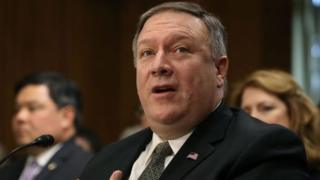
On his twitter, US Secretary of State Mike Pompeo condemned Iran for testing new ballistic missile: ‘The Iranian regime has just test-fired a medium range ballistic missile that’s capable of carrying multiple warheads. This test violates UNSCR 2231. Iran’s missile testing and missile proliferation is growing. We condemn this act and call upon Iran to cease these activities.’
In response to Pompeo, Iranian FM Mohammad Javad Zarif tweeted: ‘Surrealism is now the US’ modes operandi in its foreign affairs: while itself violates UNSCR 2231 – and even threatens to punish those who don’t wish to violate it in abiding with illegal US sanctions – it now falsely accuses Iran of violating the very same resolution.’ Later on Zarif didn’t deny testing missiles; he just said that Iranian missiles have not been produced for carrying nuclear weapons.
Abulfazl Shekarchi, spokesperson of Iran’s armed forces, also reacted to Pompeo, saying that Islamic Republic of Iran will certainly continue testing its missiles. Shekarchi added that ‘Islamic Republic has testing and developing missiles in its agenda and will not ask permission from other countries in this regard’. He asserted that ‘we don’t find it necessary to be accountable to anybody for our missile capability’.
Iran’s recent missile testing faced with reaction of Jeremy Hunt, Britain’s Foreign Minister, who called it ‘provocative’. On his twitter, Hunt wrote that Iran’s testing mid-range ballistic missiles is ‘incompatible with UNSCR 2231’ and is provocative and threatening. He has added that ‘our support for JCPOA in no way lessens our concerns at Iran’s destabilizing missile programme’.
France too called Iran’s testing mid-range missiles capable of carrying different warheads a provocative and destabilizing measure. Agnes von der Muhll, France’s foreign ministry’s spokesperson, said in a statement that Paris has become worried about Iran’s missile test, while ‘condemning this provocative, destabilizing act’.
Members of UN Security Council met behind closed doors on Tuesday to investigate Iran’s latest missile test. Niki Haley, US ambassador to UN, called for the security council members to condemn Iran’s recent testing of ballistic missiles unanimously, calling it ‘dangerous and concerning’, as well as a violation of UN resolution. Haley added, ‘the international community cannot keep turning a blind eye every time Iran blatantly ignores Security Council resolutions’.
BBC Persian – December 2
Radio Farda – December 3
Demography Professor among Those Arrested on “Infiltration” Charges
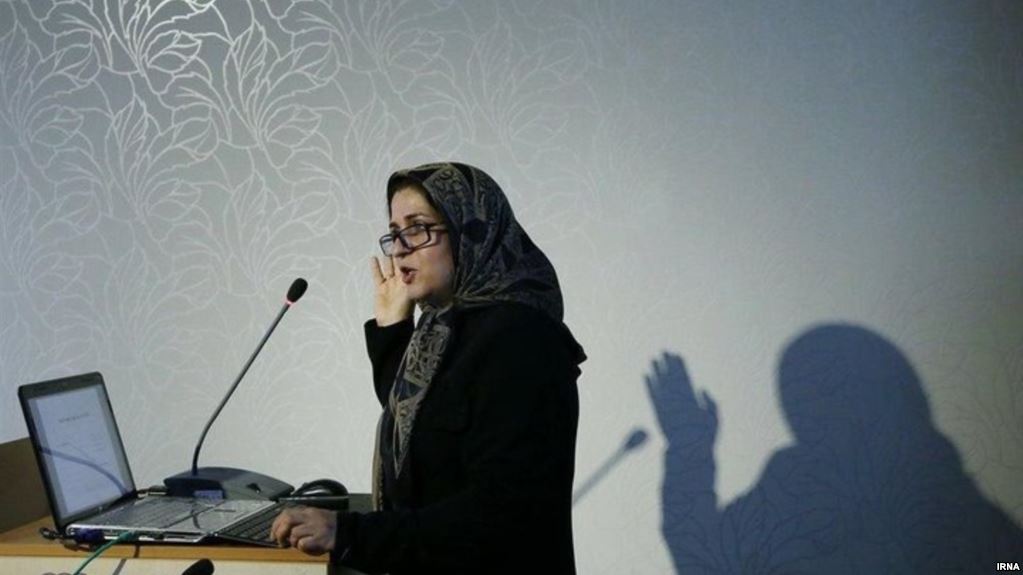
Meymanat Hosseini Chavoshi, a dual-national demography professor and researcher at Australia National University, has been recently arrested. In an interview with IRNA, lawyer Mahmoud Behzadi announced the news and added she had no access to attorney.
Fars News Agency, affiliated with the Islamic Revolutionary Guards Corps, reported last week that a number of “infiltrators” active in “population control” had been arrested. According to that report, they were trying to impact the population policies of Iran’s establishment. A security organization, along with the judiciary, summoned and arrested those individuals who were after infiltrating into various governing bodies of the establishment, such as Ministry of Science, Ministry of Health, Parliament Research Center, Planning and Budget Organization and Statistical Center of Iran, reported Fars news agency, said Fars news agency.
The principlist lawmaker Nasrollah Pejmanfar supported the arrests, claiming those who were detained used to “manipulate” population statistics and then presented them to the establishment’s higher ups. Some users of social media in Iran compared such arrests with those of environment activists who were lately charged with “espionage.”
The policy of controlling the population of Iran started during Hashemi Rafsanjani’s presidency with the slogan like “only two children” and “less children, better life”, and the policy was even encouraged by some clerics. But Mahmoud Ahmadinejad, during his presidency, disagreed with this policy, calling it “extinction of nation” of Iran. Later in 2013, Iranian supreme leader Ali Khamenei, too, called the policy of controlling the population a mistake. Iranian parliament then ratified restrictions on preventing pregnancy.
Meanwhile, environmental activists who have been detained for 9 months were also called ‘infiltrators’ by Iranian Attorney General, Mohammad Jafar Montazeri. He claimed it has been years that ‘America and Israel have infiltrated in sensitive, vital locations of Iran, installing their cameras to, for example, observe this or that animal’. But, according to Isa Kalantari, head of Department of Environment, Minsters of Intelligence, Interior, and Justice have reached the conclusion there is no proof of espionage for arresting these activists.
Kavoos Seyed Emami, academic and environmental activist, lost his life in the prison of IRGC’s Intelligence Office. This organization claimed Seyed Emami committed suicide in the prison – a claim rejected by his family, as well as by deputy Parliament speaker.
Islamic Republic has a long history of charging the opponents as being ‘spies’, ‘infiltrators’, ‘seditionists’, ‘enemies of God’. But now it is using such charges against scientists and different activist groups, accusing them of espionage and acting as agents of foreign governments.
Radio Farda—December 2
Islamic Republic to Sponsor Families of Those Recently Killed in Palestine
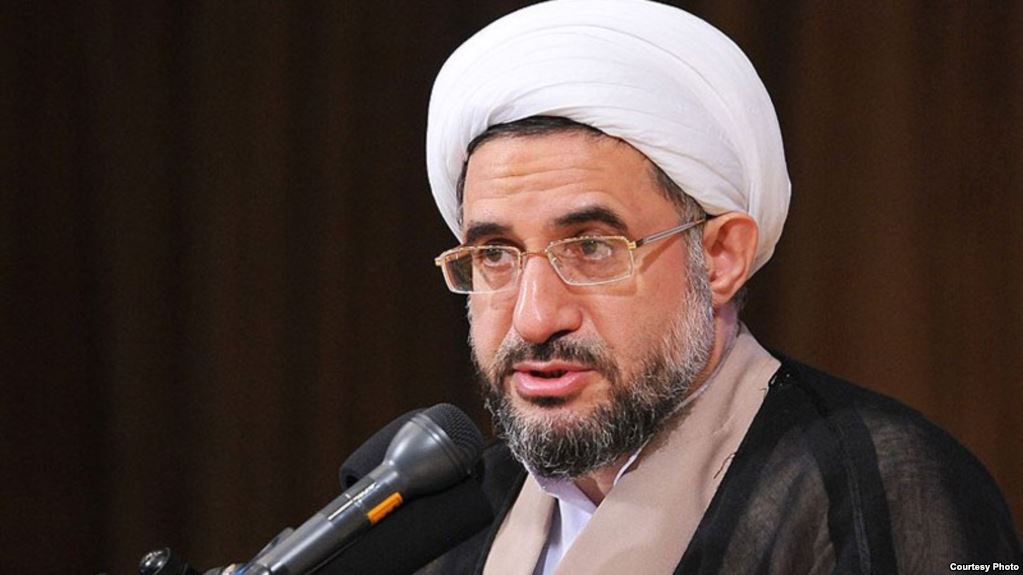
An official of Islamic Republic announced that families of ‘martyrs of return’ will be sponsored by Iran. Mohsen Araki, director general of World Forum for Proximity of Islamic Schools of Thought, announced this in the 32nd International Islamic Unity Conference held in Tehran.
‘Martyrs of Return’ refers to those Palestinian killed during recent clashes in borders of Gaza and Israel. ‘March of Return’ has started earlier this year, and so far, 300 Palestinians have been killed and 20,000 wounded. Araki’s remarks can mean that from now on, the families of these Palestinians will receive monthly payments.
This news is published as Iranians – particularly Iranian workers – have again and again chanted slogans against Iranian establishment giving away money to citizens of other countries. Iranian workers, during past weeks, have held demonstrations and chanted slogans against Iranian establishment, saying, ‘our children are hungry; they are thinking of Gaza’ and ‘Palestine and Syria are causes of our misery’. Before that, in protest demonstrations in front of Parliament, people had chanted ‘let go of Syria and think about us’ and ‘no to Gaza, no to Lebanon, my life for Iran’, thus showing their dissatisfactions with squandering Iran’s resources and money in other countries.
During month of Ramazan this year, for example, there was a footage of ‘giving iftar’ to 300,000 people in Gaza by Imam Khomeini Relief Foundation. It triggered the campaign of ‘no to charity funds’ in Iran. Those joining the campaign said that they thought the money given to charity funds was spent on the needy ones in Iran; they were upset when hearing that the money was given to Palestinians in Gaza.
Radio Farda – December 2
Iran Oil Export to Asian Countries Reaches Lowest in Past 5 Years
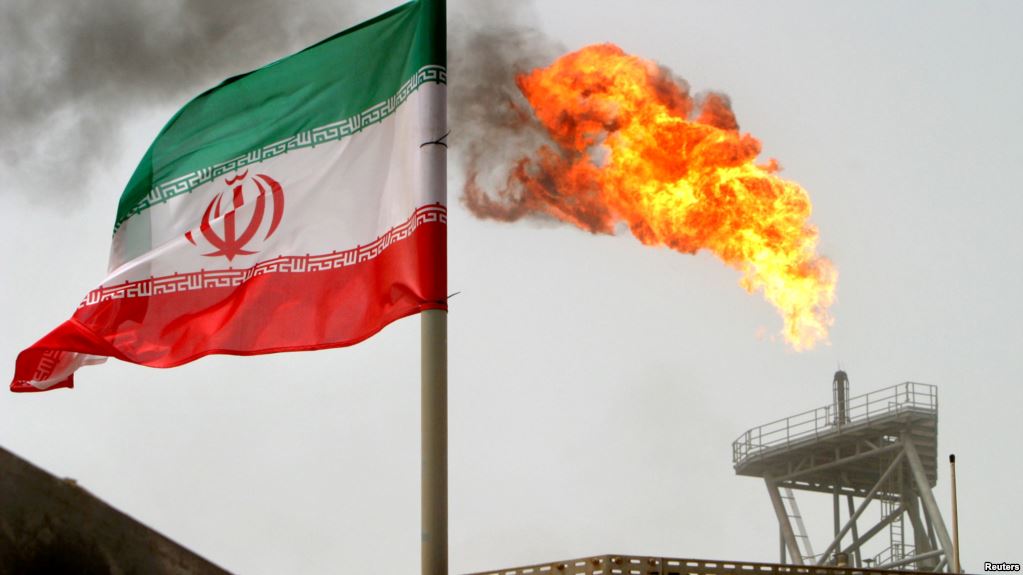
Main Asian buyers of Iran oil, in October and before the implementation of second round of US sanctions, cut their purchase of oil from Tehran to the lowest in past 5 years. China, Japan, South Korea severely cut their import of Iranian oil before the second round of US sanctions started in November.
China, India, Japan and South Korea imported 762 thousand bpd from Iran last month. This is 56% less than last year and the lowest since October 2013. At that time, too, the US and Europe severe sanctions had affected Iran’s oil export since early 2012.
This year the United States allowed 8 buyers of Iran’s oil including China, South Korea and Japan to continue buying oil from Iran for 180 days. Most of Indian oil refineries increased their purchase of oil from Iran before the beginning of the US sanctions, because Iran proposed to export oil to them with almost zero cost for transportation.
Japan reduced importing oil from Iran for 71% – which was the lowest in past 6 months. It is said that the amount will be zero for November, the first time since July 2012.
VOA Persian – December 2
70% Increase in Prices of Essential Goods in Iran
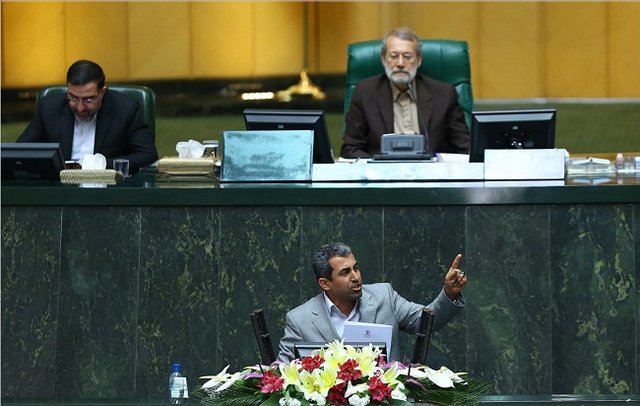
The Head of economic committee in Iran’s parliament says prices of essential goods has seen a seventy-percent rise, compared to last year. Mohammad Reza Pourebrahimi stated the government dedicates $13-14 billion –at the rate of 4200 tomans– for importing essential goods. Yet despite that, the prices of such items have had a 70 percent rise in one year. Rice, wheat, meat and dairies are considered as necessary goods in Iran.
Pourebrahimi emphasized that “middlemen have pocketed more than a thousand billion tomans of foreign exchange” and the government needs to monitor increase of prices, especially those of dairies.
After the United States pulling out of the nuclear deal and increase in dollar’s price, there were reports as to storing goods by some people. Meanwhile, according to the Central Bank’s report, point by point inflation for last month was 39.9%. According to the same report, the rate of inflation for goods was 61.9% during the same month.
ISNA—December 2
Radio Farda
Rouhani’s Advisor Declares One-Third Budget Shortfall, His Words Get Censored
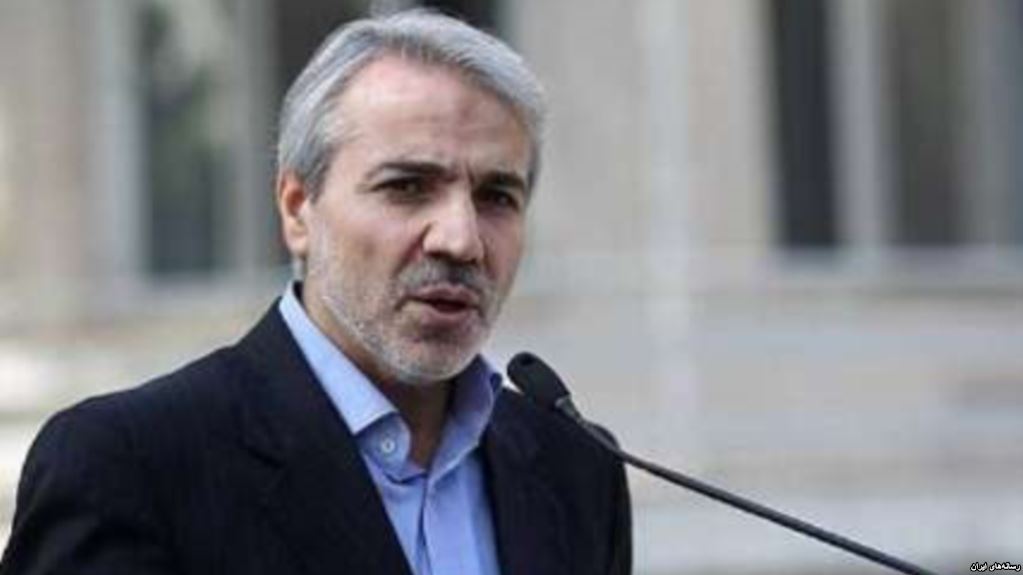
A month after the return of US sanctions against Iran, President Hassan Rouhani’s advisor announced that the country’s revenue has had a one-third decrease. Mohammad Bagher Nobakht made this announcement– which was soon removed from Iran’s news outlets– in reply to a number of persons with disabilities who had gathered in front of his organization to object to reduction of the budget dedicated to State Welfare Organization next year.
Talking on the International Day of Persons with Disabilities, Nobakht– who is also the Head of Iran’s Plan and Budget Organization– added Iran has reduced its oil production from two and a half million barrels per day to one million barrels. He also stated the budget for military institutions, such as the Islamic Revolutionary Guards Corps and Iran Army has had a 10% reduction. Moreover, the President’s advisor maintained that teachers had also complained about next year’s budget, but the fact is that “resources are limited”.
On a different note, Iranian First Vice President Eshaq Jahangiri, too, announced that Iran has cut the share of oil revenue in its next year’s budget to about 25%. He added that Iran’s main challenge is to face the US sanctions, saying that the US pressure is focused on grounding the country’s economy and thus damaging other sectors as well. The Americans say that they intend to cut Iran’s oil export to zero by imposing new sanctions.
Many economic experts hold that an inflationary recession awaits for Iran’s market, as the country’s economy is under sanctions, Forex reserves is not at a desirable level, and the future of selling oil is not very clear.
VOA news—December 4
Iran International
Lawmaker Slams Iran’s Guardian Council for Corruption
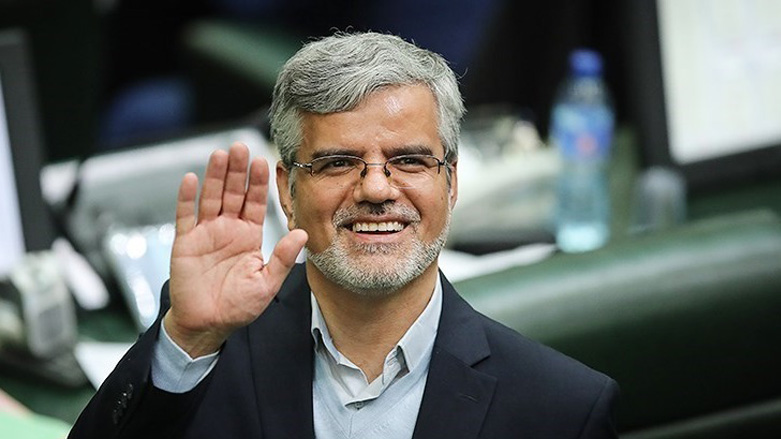 Mahmoud Sadeghi, Tehran representative in parliament, has accused the Guardian Council of financial corruption. Sadeghi’s remarks came after the head of Guardian Council Ahmad Jannati said: “Some are thinking of overthrowing [of Iran’s regime]”, while “smuggling and corruption can be prevented.”
Mahmoud Sadeghi, Tehran representative in parliament, has accused the Guardian Council of financial corruption. Sadeghi’s remarks came after the head of Guardian Council Ahmad Jannati said: “Some are thinking of overthrowing [of Iran’s regime]”, while “smuggling and corruption can be prevented.”
In reply to his words, Sadeghi wrote on twitter, “Does Ayatollah Jannati know that financial corruption has also penetrated into the institution which is headed by himself?”
Meanwhile, the Guardian Council has filed a complaint against Mahmoud Sadeghi for “disseminating falsehoods and agitating the public mind”. The council has asked Tehran Prosecutor Mahmoud Jafari Dolatabadi to institute legal proceeding against Sadeghi.
Radio Zamaneh—December 5
Tabnak—December 5
Students Assembly in Support of Workers Turns Violent
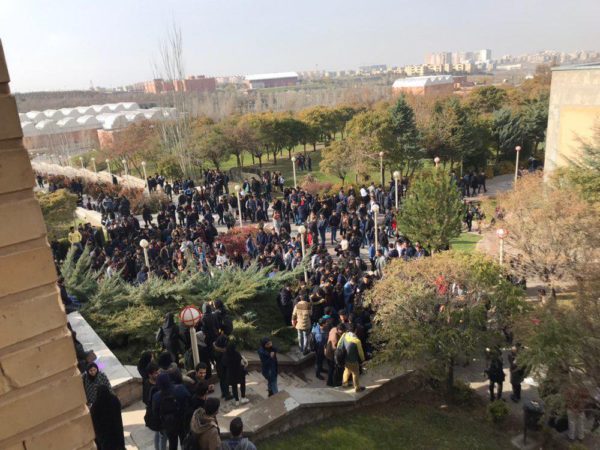
A number of students of Tehran’s Amir Kabir University who held an assembly today to support workers and teachers’ demonstrations were attacked by the Basij and plainclothes forces. Video clips published on social media show students chanting “Workers, students, unite!”, “Cannons, tanks and machine guns have no effect anymore!” and “Detained workers, students, teachers must be released.”
Basij and plainclothes forces confronted students and during these clashes at least one student was injured. Fars News Agency, affiliated with the Islamic Revolutionary Guards Corps, accused protesters of “subversion” and supporting “seditionists” and “security convicts.”
In addition to Amir Kabir University in Tehran, students of Babol Noshirvani University of Technology in northern Iran as well as the students of Sahand University of Technology in northwestern city of Tabriz staged demonstrations today, calling for putting an end to crackdown on students.
Radio Zamaneh—December 4
Iran Committing Crime against Humanity by Concealing Fate of Slaughtered Political Dissident, Says Amnesty International
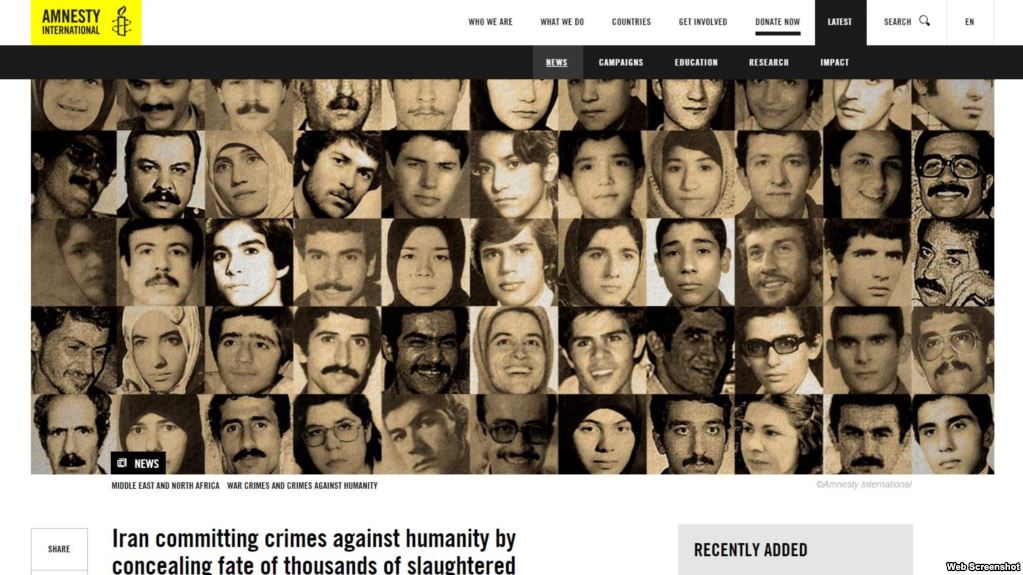
In a report on the occasion of 30th anniversary of mass execution of political prisoners in Iran, Amnesty International announced that officials of Islamic Republic still continue to commit ‘crime against humanity’ by concealing the destiny and burial place of thousands of political dissidents. This report, called Blood-soaked secrets: Why Iran’s 1988 prison massacres are ongoing crimes against humanity, was issued on Tuesday 4, and it calls for the United Nations to hold independent investigation regarding ‘extrajudicial killings’ and ‘mass enforced disappearance’ of political dissidents which has gone unpunished for three decades.
The report describes how, in late July 1988, the authorities put prisons on lockdown across the country and suspended family visits without giving any reasons. Over the following weeks, at least 5000 political dissidents were extrajudicially executed in a coordinated effort to eliminate political opposition.
The report reads: ‘instead of continuing their cruel attacks against families, the Iranian authorities should be ensuring their right to truth, justice, and reparation – including returning victims’ bodies and identifying remains.’
VOA Persian – December 5
Iranian Fake News Machine
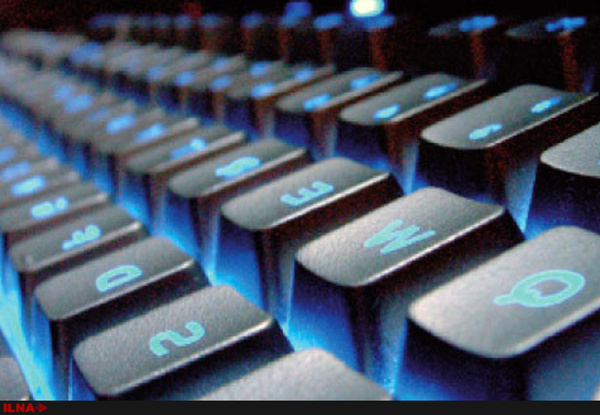
Reuters news agency published a detailed report about Iran’s efforts to disseminate fake news all over the world. According to Reuters, a center located in Tehran distributes fake news and state propaganda in at least 70 websites for different countries, from Afghanistan to Russia, to impact public opinion.
According to ILNA, too, an Israeli cybersecurity firm called ClearSky claimed to have found an internet network of fake news tied with Iran – active in several languages and in different countries. According to this company, this network has hundreds of fake social network profiles and 150 front websites and is active in 28 countries and in 29 languages, trying to provide Iran’s interests.
ClearSky said this network is basically active in the United States, Israel, Saudi Arabia and Yemen, targeting Arab-speaking countries mainly – with 40 websites designed in Arabic. According to ClearSky, the network is run by an organized group consisting of tens of journalists and editors speaking different languages, graphic designers, software managers, and social media experts.
ILNA – December 2
VOA Persian – December 2
